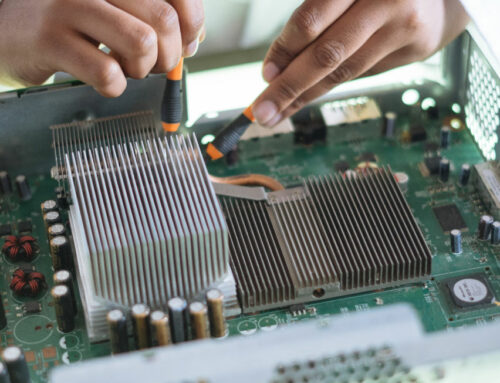Many businesses are looking for ways to get the most out of their IT infrastructure. The need for an always available and always on environment may create a need that the physical location of the business isn’t able to handle.
This leads to looking for a colocation facility. If you’re not familiar with the term, a colocation facility is a data center where businesses can store servers and other hardware. Colocations may vary in terms of what they offer, including the building itself and any heating or cooling provided, bandwidth and physical security of the site.
So, how do you choose the right colocation facility for your business? It’s important to loop in other departments, beyond the IT department, such as cybersecurity, finance, executive leadership, and the facilities department in planning for colocation and making the decision on a facility.
In addition to keeping your business’s unique needs in mind, there are some best practices to consider, including the level of customer experience you receive and their ability to partner with your existing IT team.
Here are a few things to consider when choosing a colocation facility:
Long-Term Goals: Before you partner with a colocation facility, it’s important that you understand and identify the long-term infrastructure goals of your business.
Consider the following objectives; user availability, connectivity, backups and disaster recovery, and investment in hardware or cloud infrastructure. With these long-term goals defined, you will have a better idea of whether a colocation facility can meet your needs today and in the future.
Security and Resiliency: While you’ll still be responsible for the security of your network and data, the colocation facility you partner with will likely be responsible for the physical security of the data center itself. Do they have security staff in-house? Do they have security zones defined?
What kind of camera and security systems do they use? Depending on the data stored on your servers, you may want to look for a colocation facility that holds an advanced security certification, such as HIPAA, PCI DSS, SSAE or ISO.
Many colocation facilities will boast a certain level of resiliency, but the best way to determine this is to actually visit the facility to learn about the building’s integrity and staff procedures.
Data Center Infrastructure Management (DCIM): In order to manage a data center, control systems are put in place to monitor temperature, moisture, fans and other variables to keep the servers running optimally.
Some control systems are better than others, some are patch worked together as new technology is developed and installed. Ask questions about the control system in place at the colocation facility, such as how things are connected, how the system responds when there is an issue, how and when the system is updated/upgraded, and what kinds of reports are available.
Heating and Cooling: To run a data center efficiently, the colocation provider measures power usage effectiveness (PUE). PUE shows power usage of the servers in the facility, the heating/cooling system and the power use by other aspects of the site.
In order to keep costs down, data center managers try to keep PUE down. Low PUE also translates into lower costs for you. Ask about the heating or cooling systems in place, system redundancy, and how they are monitored. Also, know your requirements for power and cooling and make sure the colocation facility can accommodate your needs.
Power and Connectivity: Power density and availability is critical, and demands have increased from several years ago. Consider a colocation facility that provides metered power, so you can pay for your usage and have visibility into how much you’re using. Also remember to look toward the future and your potential power needs down the road.
Your business may have unique connectivity requirements, depending on location and geography and whether you utilize cloud or hybrid infrastructure. Make sure that the colocation facility you choose can arrange the cross connects you need to connect to your office locations, other data centers or cloud provider.
Also consider whether the colocation is carrier-neutral or tied to a specific network provider. Carrier-neutral facilities offer choice of network provider and maximum availability because they’re not tied to a single network provider.
Other Services and Amenities: In addition to the nuts and bolts of running a data center and colocation facility, it’s important to consider the realities of the partnership.
Is it a good culture fit, will your employees and the facility staff be successful working together? Are there comfortable places for your employees to work or meet if they need to be on site? Are refreshments and break rooms available? What other services do they offer that may make your life easier, such as shipping and receiving, infrastructure services, or disaster recovery services?
Keeping these things in mind when you are selecting and planning your move to a colocation facility will help you make the right decision for your business.
If you need a hardware partner to help fill your colocation space with networking, server and storage gear, Summit sells the full line of Cisco, HP and Dell products both new and old.




